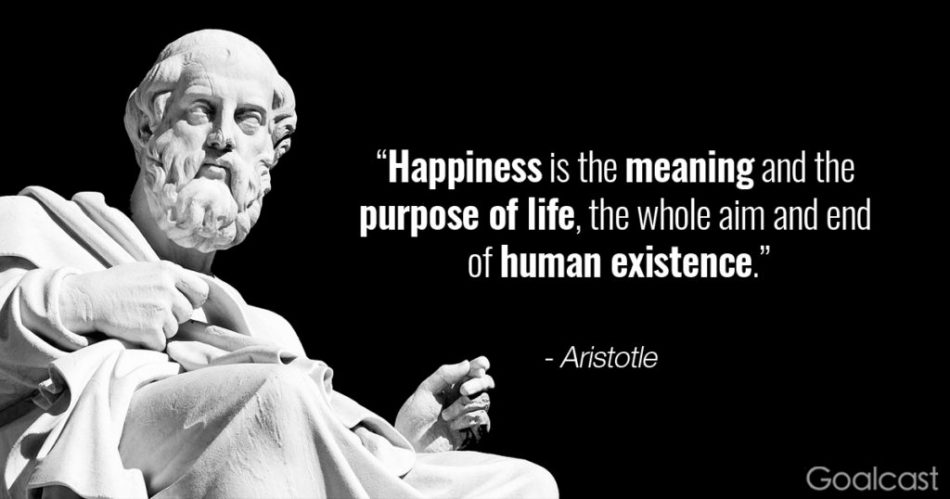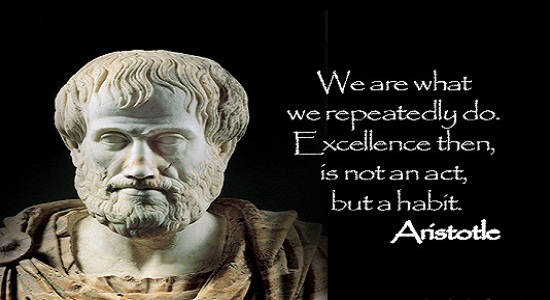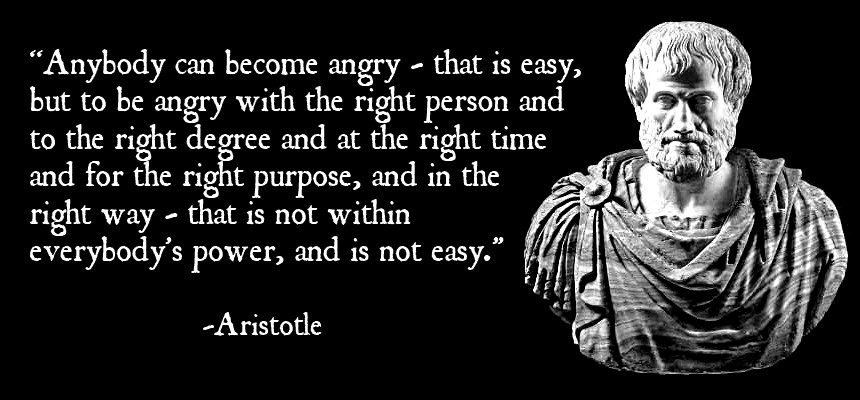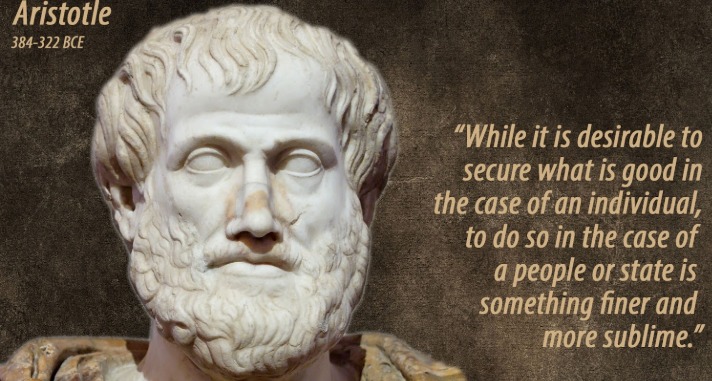Page Description
Explore the life and philosophy of Aristotle,
the ancient Greek philosopher whose ideas on science,
politics, and ethics have shaped Western thought.




Aristotle: The Architect of Western Thought
Aristotle (384–322 BCE), one of the most influential philosophers in history, laid the foundation for countless fields of knowledge, from ethics and politics to biology and metaphysics. A student of Plato and tutor to Alexander the Great, Aristotle’s legacy transcends time, shaping the intellectual fabric of the Western world.
Through his meticulous exploration of logic, nature, and human behavior, Aristotle sought to uncover the principles underlying all aspects of existence. His ideas continue to inspire and challenge us, offering timeless insights into the complexities of life, society, and knowledge itself.
This page delves into Aristotle’s profound contributions, his methods of inquiry, and the enduring relevance of his philosophy in understanding the world and our place within it.
Aristoteles: De Architect van het Westerse Denken
Aristoteles (384–322 v.Chr.), een van de meest invloedrijke filosofen uit de geschiedenis, legde de basis voor talloze kennisgebieden, van ethiek en politiek tot biologie en metafysica. Als leerling van Plato en leraar van Alexander de Grote overstijgt Aristoteles’ nalatenschap de tijd en vormt het de intellectuele kern van de westerse wereld.
Met zijn nauwgezette onderzoek naar logica, natuur en menselijk gedrag probeerde Aristoteles de principes te onthullen die ten grondslag liggen aan alle aspecten van het bestaan. Zijn ideeën blijven ons inspireren en uitdagen, en bieden tijdloze inzichten in de complexiteit van het leven, de samenleving en kennis zelf.
Op deze pagina gaan we in op de diepgaande bijdragen van Aristoteles, zijn onderzoeksmethoden en de blijvende relevantie van zijn filosofie om de wereld en onze plaats daarin te begrijpen.
Aristotle’s guide to the good life | Nicomachean Ethics
30 okt 2024
Aristotle’s Nicomachean Ethics is a classic work of philosophy, especially in virtue ethics. I hope this video can help guide you through the book and help you read it for yourself. Topics include Aristotle’s influence, happiness, the virtues, friendship, and contemplation.
How Aristotle Thought about the World
This is a short lecture comparing the Aristotelian and Modern world-views. It is part of a larger introduction to ethics course, but it can be viewed and understood independently.
The Only Self-Help Book Worth Reading | Aristotle’s Nicomachean Ethics
7 mrt 2024
The self-help and self-improvement community have skyrocketed in popularity over recent years. Yet almost everything they tend to say was already recommended, and in some ways improved upon, by the ancient Greek philosopher Aristotle. So get ready to have a look at the only self-help book worth reading: The Nicomachean Ethics.
00:00 Ancient Greek Self-Improvement
01:35 A Matter of Habit
06:06 Intellectual Virtues
10:51 Ego, Community, and Happiness
14:40 Taking the High Road
The Nicomachean Ethics Summary (Animated) — Ancient Wisdom From Aristotle to Achieve Eudaimonia 🏛️
30 jun 2023
This is a book summary of The Nicomachean Ethics by Aristotle.
📚 CHAPTERS
0:00 – Introduction
1:23 – Top 3 Lessons
1:56 – Lesson 1: Aim to achieve a state of eudaimonia, instead of conventional happiness.
3:27 – Lesson 2: Arete, or virtue, is accomplished through a lifetime of work.
5:54 – Lesson 3: Strive to become magnanimous and thus, do honorable things in your life.
📚 DESCRIPTION
The Nicomachean Ethics is a historically important text compiling Aristotle’s extensive discussion of existential questions concerning happiness, ethics, friendship, knowledge, pleasure, virtue, and even society at large.
Educational
Aristotle’s Nicomachean Ethics – Book I
4 feb 2020
I am writing a book! If you want to know when it is ready (and maybe win a free copy), submit your email on
I won’t spam you or share your email address with anyone.
This is a lecture about just a few sections of book 1 of Aristotle’s Nicomachean Ethics. The lectures focuses on Aristotle’s argument to the conclusion that the good, for a human being, is exercising the virtues. The argument stems from the claim that happiness or flourishing or eudaemonia is the ‘final’ and ‘self-sufficient’ end of human action, and that happiness, for a human, is using rationality, which is, for Aristotle, exercising the virtues. That is an absurdly brief statement of the argument. You have to watch the video to understand what is going on. Part of the point of this, though, is that, for Aristotle, the reason to act virtuous, or morally, is that doing so makes one happy.
Aristotle’s Virtue Ethics
7 okt 2020
This video lecture discusses the core concepts of Aristotle’s virtue ethics. Aristotle’s virtue ethics can be gleaned from his seminal work titled Nichomachean Ethics. This book is undoubtedly the first systematic study of ethics in western civilization. In this book, Aristotle offers principles of conduct that would guide humans in attaining the “good life”.
Please note that the content of this video lecture is different from the content of the video lecture titled “What is Virtue Ethics”.
Educational: Very Good
How To Develop A Virtuous Character – Aristotle (Aristotelianism)
12 jun 2022
In this video we bring you how to develop a virtuous character from the philosophy of Aristotle. His philosophy is often referenced as Aristotelianism.
Aristotle defined virtues as dispositions to choose good actions and passions, informed by moral knowledge of several sorts. For Aristotle, virtues can be intellectual or moral, the intellectual ones are learned by instruction or education, the moral ones are developed by habits. Performing virtuous acts can be motivated by having a practical purpose or by the desire to act in a virtuous way or by both. In this video, we will explore what one might need to develop virtuous character in accordance with Aristotle’s Virtue Ethics Theory. The three ways to develop your character are –
01. Adopt a Virtuous Mindset
02. Practice Practical Wisdom
03. Contemplate and Reflect
I hope you enjoyed watching the video and hope these three ways to develop your character from the philosophy of Aristotle will add value to your life.
Aristotle is a Promethean figure in the history of the world, who lived between 384–322 BC, He is considered “the father” of logic, biology, political science, zoology, embryology, of natural law, scientific method, rhetoric, psychology, realism and even of meteorology. He was first a student of Plato, then, when Plato retired, he left the Academia which Plato founded, and he became the tutor of Alexander The Great, and the two other future kings: Ptolemy and Cassander. He established a library in the Lyceum which helped him to produce many of his hundreds of books on papyrus scrolls. Unfortunately, only a third of his magnificent work has survived. For example, the treatises “Physics”, “Metaphysics”, “Nicomachean Ethics”, “Politics”, “On the Soul” and “Poetics”, have influenced more than two millennia of scientists and theologians alike, both fascinated by his ideas.
Narration/Audio Editing: Dan Mellins-Cohen
https://www.dmcvoiceovers.com
1 Aristotle: LIFE CHANGING Quotes (Ancient Greek Philosophy)
22 mei 2020
Aristotle Quotes: Aristotle (384–322 BC), was one of the most famous Greek philosophers during the Classical period in Ancient Greece. Aristotle was Taught by Plato.
Aristotle most known student was Alexander The Great.
In this Quote Video we focus on the Best Quotes about Life from Aristotle / Aristoteles.
So if you love quotes, and especially Ancient Greek Philosophy Quotes, this video will be a good one for you. 😉
Enjoy watching:
Aristotle: LIFE CHANGING Quotes | Ancient Greek Philosophy
2 Aristotle’s Lyceum
7 jun. 2019
3 Aristotle: History’s Most Influential Thinker
25 dec. 2018
4 Aristotle
10 mrt. 2021
Aristotle was a Greek philosopher who lived from 384 BC to 322 BC. He was a student of Plato and a teacher of Alexander the Great. Aristotle’s ideas and works have had a profound impact on Western philosophy and thought. Some key points of Aristotle’s philosophy include:
Logic: Aristotle is considered the father of logic, and his work in this field has influenced both philosophy and mathematics. He developed a system of deductive reasoning known as syllogism, which is still used today.
Metaphysics: Aristotle’s metaphysics deals with the study of reality, including the concepts of substance, causality, and potentiality. He believed that everything in the universe is composed of substances, which have essential characteristics that define them.
Ethics: Aristotle’s ethics is focused on the idea of eudaimonia, or happiness, which he believed was the ultimate goal of human life. He argued that living a virtuous life was essential to achieving happiness.
Politics: Aristotle’s politics is concerned with the study of government and society. He believed that the best form of government was a mixed constitution that incorporated elements of democracy, aristocracy, and monarchy.
Biology: Aristotle’s work in biology was groundbreaking for its time. He classified living things into categories, and his observations and writings on the natural world influenced scientific thought for centuries to come.
Overall, Aristotle’s philosophy is characterized by a systematic approach to understanding the world and the pursuit of knowledge for its own sake.
5 “How Ancient Wisdom Can Change Your Life”: Yale Well Lecture with Edith Hall
9 mei 2019
7 Aristotle and Virtue
8 PHILOSOPHY – The Good Life: Aristotle [HD]
8 sep. 2015
9 – 21. Happiness as Eudaimonia: Aristotle’s Virtue Ethics
29 apr. 2014
10 What is Virtue Ethics? (Philosophical Definition)
7 jan. 2018
11 Socrates, Plato, and Aristotle (Short Documentary)
11 jul. 2015
12 PHILOSOPHY – Aristotle
Gepubliceerd op 29 okt. 2014
Aristotle was the master of virtues. For gifts and more from The School of Life, visit our online shop: https://goo.gl/OD73do
Download our App: https://goo.gl/T9ZZTy
FURTHER READING
“Aristotle was born around 384 BC in the ancient Greek kingdom of Macedonia, where his father was the royal doctor. He grew up to be arguably the most influential philosopher ever, with modest nicknames like ‘the master’, and simply ‘the philosopher’. One of his big jobs was tutoring Alexander the Great, who soon after went out and conquered the known world…”
You can read more on this and other topics on our blog TheBookofLife.org at this link: https://goo.gl/M77XLT
MORE SCHOOL OF LIFE
Our website has classes, articles and products to help you think and grow: https://goo.gl/S503ca
Watch more films on PHILOSOPHY in our playlist:
http://bit.ly/TSOLphilosophy
Do you speak a different language to English? Did you know you can submit Subtitles on all of our videos on YouTube? For instructions how to do this click here: https://goo.gl/bKiIPo
13 Aristotle & Virtue Theory: Crash Course Philosophy #38
15 Aristotle on 6 Types of Justice (Nicomachean Ethics. bk 5) – Philosophy Core Concepts
1 dec. 2013
16 Mouse Hidden in Woman’s Hair Prank
14 sep. 2016
Filmed in Montreal, Quebec